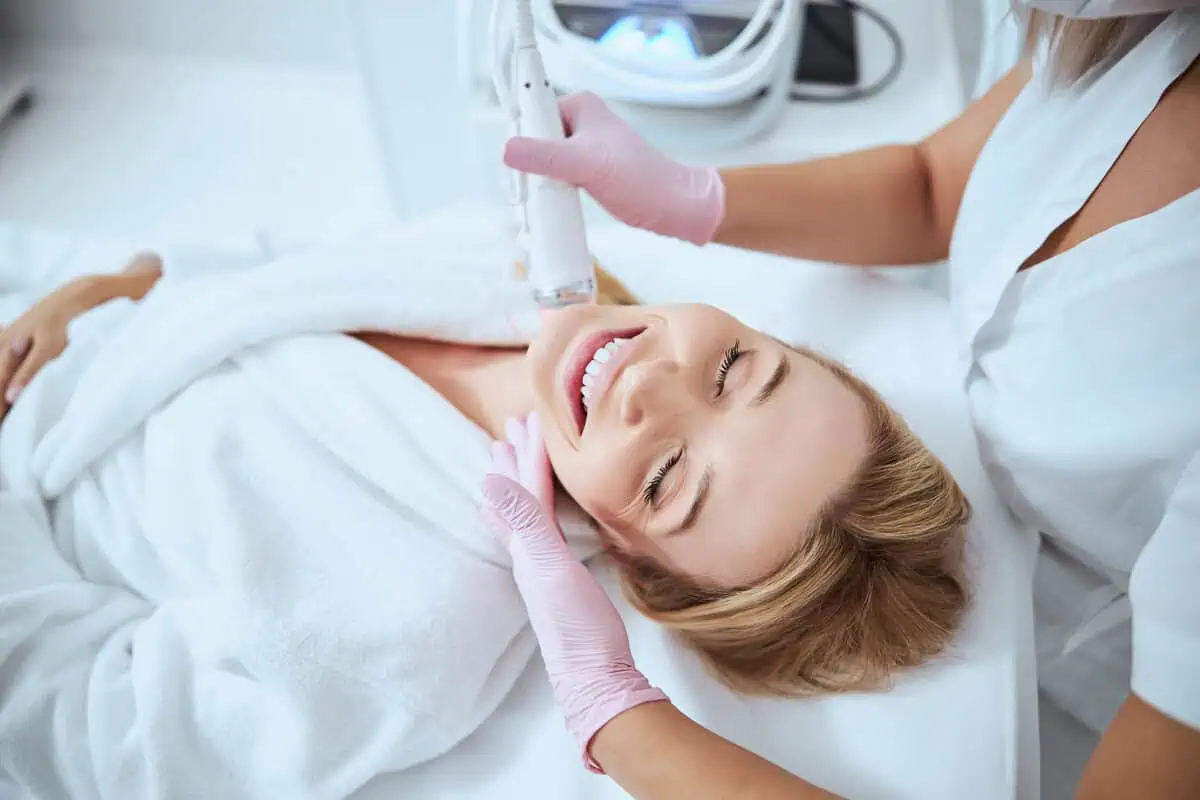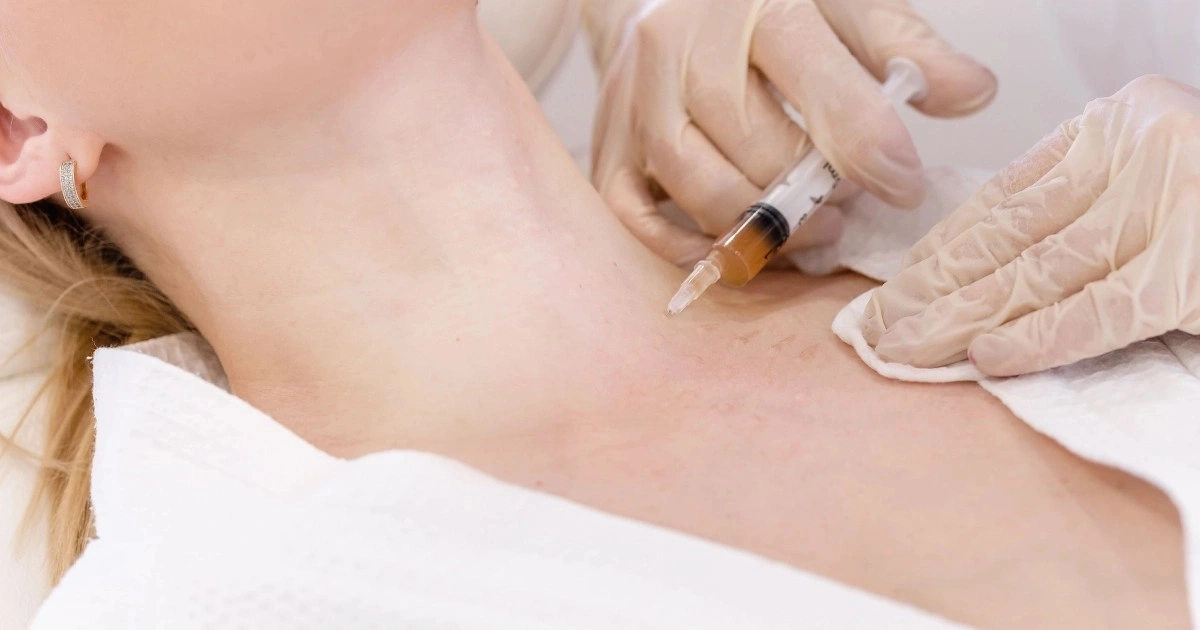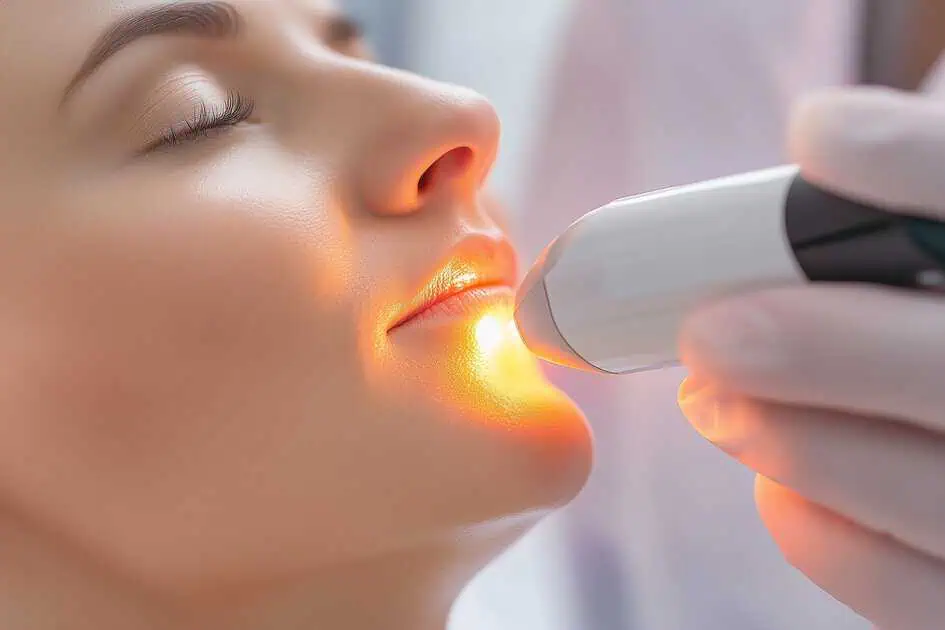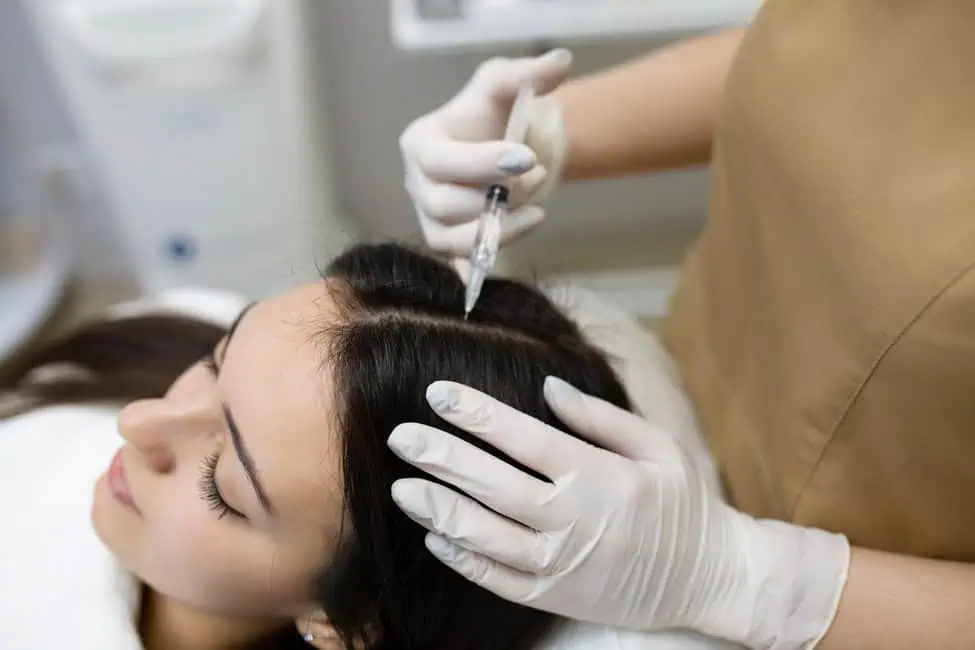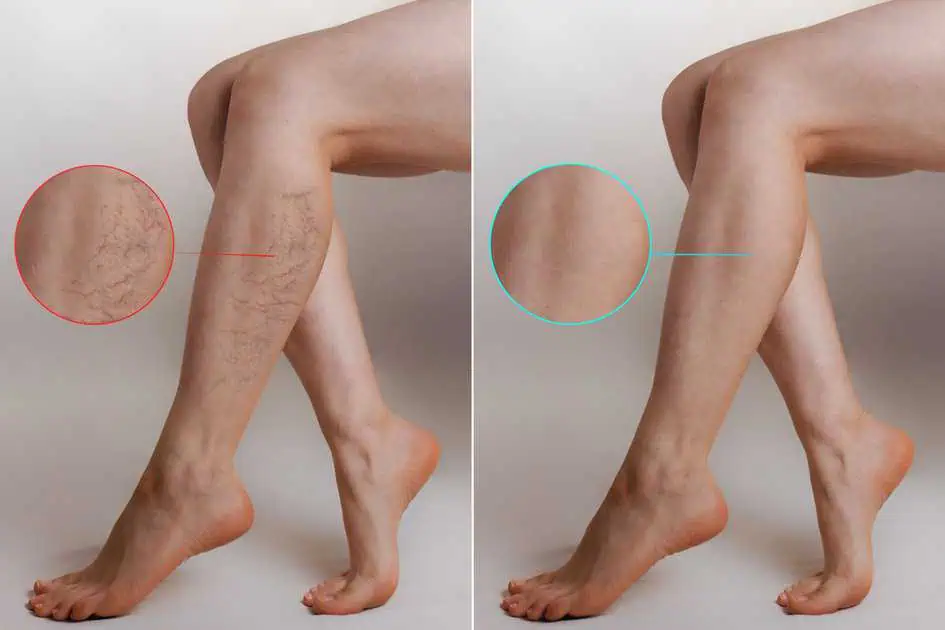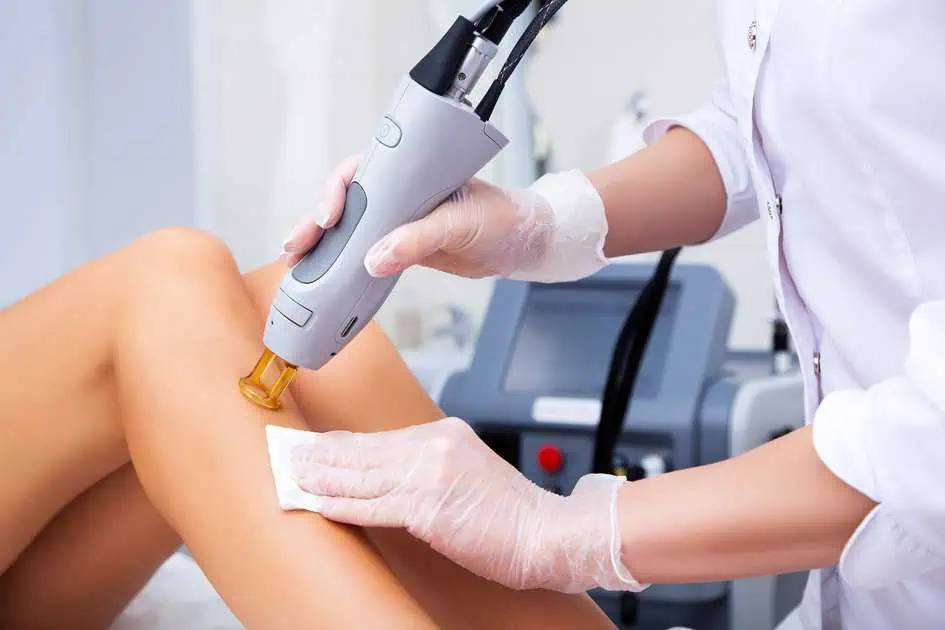Microneedling is gaining popularity as a skin treatment option for various cosmetic and medical concerns. This procedure is praised for improving the appearance of acne scars, fine lines, and uneven skin tone, making it a versatile choice for many. Unlike other treatments, microneedling is suitable for almost all skin types, adding to its appeal. People turn to microneedling not only for its effectiveness but also for its minimal recovery time and the convenience of integrating it into a regular skincare routine. Whether addressing common signs of aging or targeting specific skin issues, microneedling offers a promising solution for those looking to enhance their skin’s appearance.
What is Microneedling?
Microneedling, also known as collagen induction therapy, consists of using a device equipped with small, sterile needles to induce regulated micro-injuries on the skin’s surface. This therapy enhances the body’s internal healing processes, encouraging collagen and elastin formation, which are vital proteins for preserving skin firmness and suppleness. Typically performed using an electric pen-like device, microneedling allows for precise control over needle depth, making it suitable for treating various skin concerns.
The process begins with applying a numbing cream to ensure patient comfort. The microneedling device is then gently moved across the skin, creating micro-channels that boost collagen production and enhance topical treatments’ absorption. This method is effective for reducing the appearance of acne scars, fine lines, wrinkles, and hyperpigmentation. Unlike heat treatments, such as laser therapy, microneedling is safe for all skin types and tones, minimizing the risk of pigmentation issues.
Microneedling’s appeal lies in its minimal downtime and ability to significantly improve skin texture and tone without the need for more invasive procedures.
Uses of Microneedling
Microneedling is a versatile cosmetic treatment that addresses a variety of skin concerns. It offers a non-invasive solution for improving skin appearance and health. Here are some microneedling benefits:
Acne Scars
- Microneedling effectively reduces the appearance of acne scars by breaking down scar tissue and stimulating new collagen and elastin production, leading to smoother skin.
Fine Lines and Wrinkles
- The increased collagen production helps plump the skin, reducing the depth and visibility of fine lines and wrinkles, making it a popular anti-aging treatment.
Skin Texture and Tone
- Microneedling improves skin texture by minimizing large pores and evening out skin tone. It effectively treats hyperpigmentation, melasma, and sun damage.
Stretch Marks
- The procedure treats stretch marks, often resulting from significant weight changes or pregnancy, by improving skin elasticity and appearance through collagen and elastin production.
Hyperpigmentation and Melasma
- Microneedling lightens dark spots and evens out pigmentation issues without risking post-inflammatory hyperpigmentation, making it suitable for all skin types.
Pore Size Reduction
- The treatment reduces the size of enlarged pores by promoting the skin’s natural healing processes, resulting in a more refined and smoother skin texture.
Enhancing Topical Treatments
- The micro-channels created during microneedling allow better absorption of topical treatments like serums and creams, enhancing their efficacy.
Procedure Details
Microneedling begins with a consultation, during which the healthcare provider examines the patient’s skin, reviews their medical history, and discusses the desired outcomes. Once a treatment plan is established, the procedure starts with applying a numbing cream, usually containing lidocaine, to the targeted area. This step ensures that the patient remains comfortable during the process.
After the numbing cream has taken effect, which typically takes about 30 to 45 minutes, the microneedling device is prepared. This device is a pen-like tool equipped with tiny, sterile needles. The provider adjusts the needle depth based on the specific skin concerns being addressed, such as acne scars or fine lines.
The microneedling device is then gently moved across the skin, creating controlled micro-injuries. Patients might feel a slight scratching sensation or warmth as the device is applied. The depth of needle penetration can vary, with longer needles used for deeper scars and shorter ones for more delicate areas like around the eyes. The treatment itself can take anywhere from 15 minutes to a few hours, depending on the size of the area being treated.
Post-Treatment
The skin may appear red and puffy after the operation, resembling a moderate sunburn. Usually, these effects go away in a few days. Using a calming serum or cream to aid in healing and avoiding the sun to protect delicate skin are common post-treatment care routines.
Most microneedling procedures are done as outpatient procedures, so patients can go back to their homes right after. Most patients can resume their normal activities, including wearing cosmetics, the day after therapy. Multiple sessions are normally advised spaced several weeks apart, to acquire the optimum benefits.
Pre-treatment Preparation
By following these pre-treatment steps, you can help ensure that your skin is adequately prepared for microneedling, leading to better outcomes and a smoother recovery.
Pre-Treatment Skin Care
- You may be advised to start using topical treatments, such as vitamin A or C creams, about a month before the procedure. These can help prepare the skin and enhance the results by promoting collagen production.
Avoid Certain Products
- To prevent skin irritation, stop using retinoids, exfoliants, and other harsh skincare products a few days before the treatment.
Sun Protection
- Steer clear of the sun and wear sunscreen at all times. Skin that has been burnt or tanned may be more susceptible to difficulties during microneedling.
Medications
- Tell your provider about any supplements or medications you take. Aspirin and ibuprofen are blood thinners that you might need to cease taking in order to lower your risk of bleeding and bruises during the procedure.
Hydration
- Ensure your skin is well-hydrated before the procedure. Drink plenty of water and use a good moisturizer to keep your skin in optimal condition.
Avoid Certain Treatments
- Refrain from undergoing other skin treatments, such as chemical peels or laser therapy, at least two weeks before microneedling. This helps to prevent excessive skin sensitivity.
Takeaway
Revitalize your skin with the transformative power of microneedling at Honey Glow Health. Whether you’re looking to reduce acne scars, smooth fine lines, or even out your skin tone, our expert team is here to help you achieve radiant, youthful skin. Start an assessment with us today to discover how microneedling can enhance your natural beauty and boost your confidence. Don’t wait—experience the benefits of professional skincare at Honey Glow Health.
